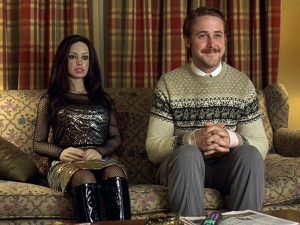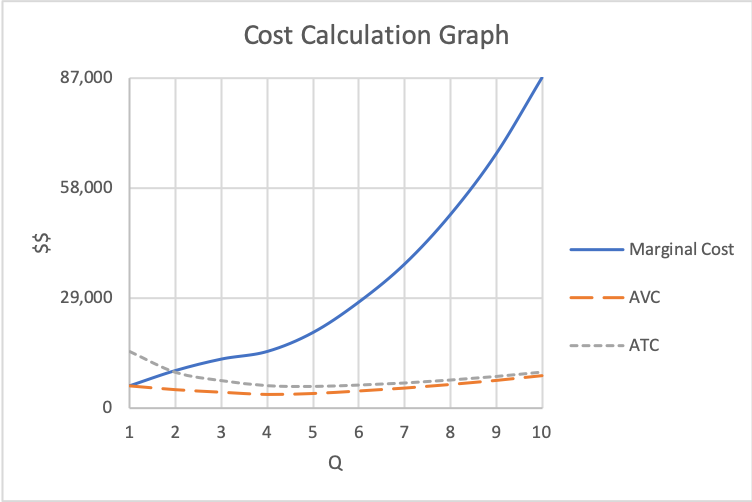Citizenship 110 – Inquiry Into Citizenship
This class was the first class I walked into on the first day of college and truthfully I was not excited. This hadn’t been a class I had picked and from reading the syllabus online I was not particularly enthused but after only 50 minutes with Dr. Blincoe my attitude had completely changed. It was quickly made apparent that students would not be taught to in this course but instead work as a group of peers, with guidance from the professor, to come to our own conclusions about certain topics pertaining to the philosophy of life. As some who is often known to overthink things, especially concerning our views of life a whole, I was thrilled to be given an environment to both explore and learn about philosophy.
Because of the format of the class I quickly became close with many of my peers and found the wealth of views and opinions to be extremely refreshing due to the current social climate. We were afforded a space to really argue, not just in the sense of disagreeing with one another, but hashing out the whats, ifs, and whys of complex issues that many people find themselves to afraid to speak with others about. The variety of issues we covered was anything but narrow too, with us discussing plato one week and watching Lars and the Real Girl the next week. This mix allowed the class to not get too drawn into any one topic and learn to take ideas that may seem abstract, and truly analyze them till we gained a deeper understanding. I would compare this class to a can opener that allowed me to take the top off my academic bubble and think more broadly in the classroom.

Education 245 – Child Development
I took this course to fulfill one of my civitae pillars and found the class to be a struggle from start to finish. Going into it I knew it was going to be dealing with material that I didn’t have much prior background in, however I looked forward to it as a challenge and hoped to gain knowledge in a subject I hadn’t previously explored. What I found was a rather in-depth look into child development through a lens which I never really gained a full understanding of. I contribute this mainly to the text which focused mainly on theories about child development that had been developed over the past couple hundred years. These theories often seemed rather loosely woven and coming from a scientific background I could quite grasp how these lightly tested ideas could be taken as the basis for a whole educational field.
This said I did learn a lot from this course and thought the structure of many of the assignments was interesting and explorative. In particular the “Three Ages Project” which was our culminating assignment allowed the students to take it upon themselves to apply what we had learned by interviewing individuals ranging in age from 3-18. These interviews were then used by the students to apply the theories and stages of development we had learned about and see if these fit into the answers we had received. I found this to be both fun and informative since hands on learning and research always help me gain a better understanding of complex subjects such as the ones tackled in this class.
Chemistry 111 – Fundamentals of Chemistry I
This course with Dr. Topham was quite a mixed experience since I have always struggled with Chemistry, but in this class the well structured testing method allowed for repeated trail and error with the possibility to still succeed. We didn’t have any large exams in this class, instead we had close to 20 small quizzes that tested specific fundamentals of Chemistry that we would need in Chem 112. This allowed students to first prioritize the subjects they felt most confident about and come back to any areas that they struggled with. This worked well for me since stoichiometry proved to be a big issue for me and required repeated attempts to pass, however I still had time to master and complete the quizzes for all the other topics. I was disappointed that this class model wasn’t transferred over to Chemistry 112 ,which I took this past spring, since I didn’t feel like I had a complete grasp on all the topics at the end of that course like I did for 111.
One project that I would like to highlight from Chemistry 111 was our final lab report which was the first full scientific report that I had to complete at Longwood. We had built up to this final project with a half dozen or so other smaller labs that tested specific areas of our writing skill but this was the capstone for all those smaller assignments. I felt that it was both a great exercise for learning and developing writing skills that ended up yielding a final assignment that I was quite proud of. The discussion and conclusion are where I felt that I did my best writing and this prompted me to focus on developing my writing skills for abstracts, introductions, and procedures in future classes.
ECON 217 – Principles of Microeconomics
I took this course with Dr. Marks and found myself to be challenged from start to finish in a way that has left a lasting impression on me. At this point during my time at Longwood I had already taken a couple challenging courses that I did not enjoy due to the frustration I felt just trying to grasp the topics. However, this class was a vastly different experience from those since learning the material was not a struggle and the challenges came from the connections that were made between economics and environmental science. This was due to Dr. Marks being aware of the large amount of science majors in the class and thus structuring it so that we could attempt to make connections between the material for the class and our main area of study for our major.
The thing that I liked most about this course, besides that fact that it challenged me academically, was that I felt like the material I was learning could be used in situations I would be dealing with in the very near future. I found that microeconomics is very closely tied to any small business venture and learning how to calculate cost inputs and product outputs was vital as it’s a task I am still doing today. The project that really allowed me to master these calculations was the “cost calculations” project that was our big in-class assignment for the semester. We had to use data on variable and fixed costs to calculate the costs of producing products and the total cost of running a business. This project took quite a bit of trial and error so I was quite pleased to receive a 100 on it when I got my grade back.

MARK 380 – Principles of Marketing
This class with Dr. Meng was hopefully the last fully online class I have to take at Longwood, however if I do have to take anymore I hope they follow closely to how this class was taught. What I missed the most during the online classes I had taken at Longwood up to this point was the peer-to-peer connections that I had been able to establish during in-person classes. In this class Dr. Meng put an emphasis on group work to allow us to make those connections with our classmates and learn together through a variety of different group assignments. She often utilized the breakout group function during our zoom lecture meetings which offered a time to collect our thoughts and discuss any areas that we had questions about. By the end of the semester I knew most of my classmates names and had meaningful conservations about the material we were learning with nearly all of them.
Due to this group dynamic that was fostered I felt like the most influential work that I did during this course was our final group project. This project challenged us to develop a product, a school planner for Longwood students, and then create a marketing plan for that product. We did this in groups of four and Dr. Meng made sure that we addressed group dynamics such as establishing a leadership structure and setting a work schedule which allowed the group work to take place without the hiccups it typically brings about. What I liked most about this project though was that it required us to use all the material we had learned about in the class to complete a task that we would likely have to do routinely if we took a marketing job in the business sector.
 Loading…
Loading…
ENSC 402 – Environmental Decision Making
This class with Dr. Straker was another course that was both challenging , interesting, and fun, which was a mix I had yet to find in a dedicated environmental science course. This class did feature a hefty lecture component which could get tiresome at times but Dr. Straker did his best to keep all members of the class actively engaged when we met. The projects and case studies that we did are where I really felt challenged and like I was learning material I could utilize in a future career as we examined how various groups and/or countries dealt with environmental issues. Dr. Straker has a background in fisheries management so the case studies did skew towards related topics to fisheries but I had no issues with this as it was a topic that I am interested in and that I believe carries large ecological importance due to humans reliance on fish as a food source.
Where I felt like I did my best work in this class was on the final project which was also my assignment that I based my enhancement work off of. This final project was a research paper where students were allowed to pick their topic and thus I decided to build upon the PRISM research I had done with Dr. Henk the past summer. In that project we examined waterfowl abundance trends in the coastal plain of the mid-Atlantic region (DE, MD, VA, NC) using Christmas Bird Count data from the last 70 years. We discovered some alarming trends for regionally common species across that study area although our dataset wasn’t quite adequate for the full 70 year time period. So when deciding how to build of this previous work I first shortened the study period to the last 50 years and then made the decision to focus in on the trends of common species for just the state of Virginia. I wanted to do this to see if there were any discrepancies between the trends from the mid-Atlantic study and one that just focused on Virginia and I wasn’t disappointed by the results.